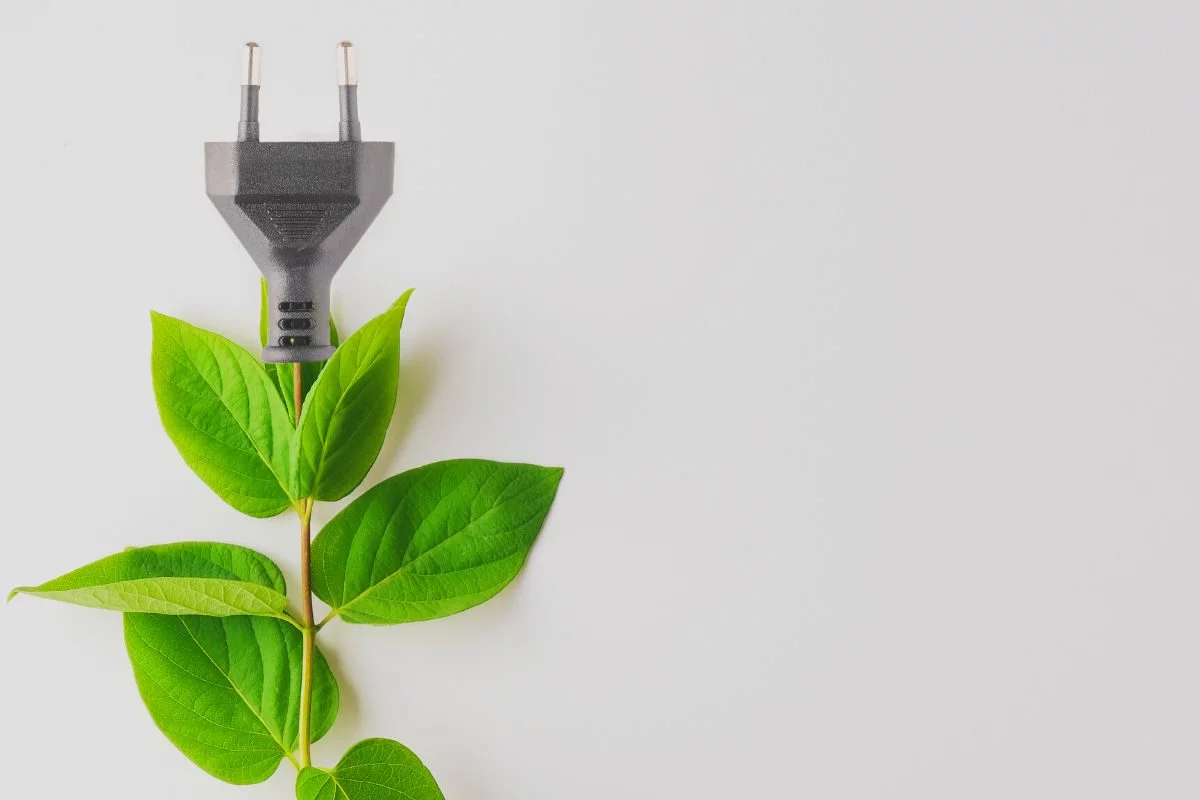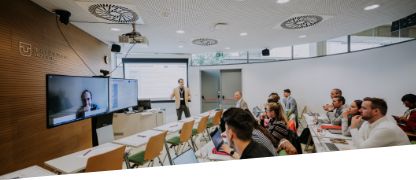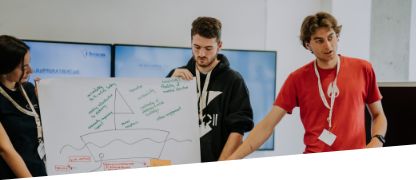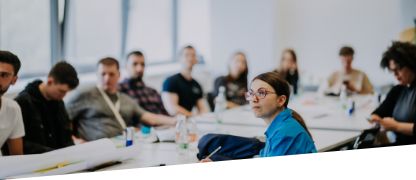Sustainable Management in Life Sciences & Engineering
SMILE study programme
SMILE combines specific and interdisciplinary training in the areas of sustainability management in life sciences with complementary training offered at each partner university and training in high-level digital skills, languages, critical thinking, creativity, innovation, leadership, and entrepreneurship as key transversal skills to provide solutions to global problems.
The programme is designed to attract applicants from a variety of disciplinary backgrounds within and outside the EU. It is in line with the latest labor market and research & innovation needs, involving the collaboration of academics, companies, cities, NGOs, and our local communities.
Fundamentals
To achieve the learning outcomes, the co-creation group established a 120 ECTS study programme, divided into two years (4 semesters, 30 ETCS each), with three main parts (the “Core semesters”, the “specialisation semester, and the “getting into the sector semester”).
From the structural point of view, SMILE begins with two core semesters including physical mobility. Students then choose a specialisation according to their preference and finish the programme by writing a Master Thesis.
- 1st semester: Foundations of Sustainable Management at MCI
- 2nd semester: Consolidation and general principles of Sustainable management at HSWT
- 3rd semester: Specialisations:
– Specialisation 1: Sustainable Food Systems, (University of Sevilla)
– Specialisation 2: Marine Conservation & Blue Economy (Université Côte D’Azur)
– Specialisation 3: Environmental Hazards & Risk Management (Université Côte D’Azur)
– Specialisation 4: Sustainable Agriculture (University of Montenegro)
- 4th semester: Thesis semester

The programme ensures an appropriate and constructive alignment between learning outcomes, learning and teaching activities and the assessment procedures.
All the details concerning the study programme, student’s support and completion of courses, and the ways to participate in SMILE will be provided in an online platform and in addition, made available for the students at the time of their admission to the programme, in the form of an online Handbook for students. Information on teaching and learning, as well as course resources will be available on an online platform.

The first semester
During the first semester at MCI the students, who will have diverse backgrounds in various fields, will learn the foundations and principles of sustainability embedded in business and management topics.
The second semester
After having learnt the fundamentals of sustainability, the students move on the Munich/Freising to dive deeper into general topics and applications of sustainable technology and management. This semester is dedicated to technical foundations of sustainability in the context of Life Sciences and Engineering including aspects of energy systems, bio-based products and sustainable process operations
The third semester
In this semester, the students split into subgroups dedicated to different specialisations and applications of sustainable management which are offered at different institutions. Four different specialisations at four different institutions are offered.
The fourth semester
During their fourth semester, students will work on their Master Theses. The thesis can be written in affiliation with any university of the SMILE consortium. The topics can be chosen freely and can be either industry-oriented in collaboration with a company or research-oriented at a university or research institution.
The thesis process
The master’s programme design is highly committed to the acquisition of transversal competencies. The master thesis aims to provide answers to a realistic challenge project from an innovative and interdisciplinary point of view.
Specializations
- Specialisation 1: Sustainable Food Systems, (University of Sevilla)
- Specialisation 2: Marine Conservation & Blue Economy (Université Côte D’Azur)
- Specialisation 3: Environmental Hazards & Risk Management (Université Côte D’Azur)
- Specialisation 4: Sustainable Agriculture (Univerzitet Crne Gore)
The Ulysseus Green Mobility and Sustainability Principles
To promote environmental responsibility, thus helping to tackle climate and environment-re-lated challenges, Ulysseus has adopted a set of green principles and practical measures for en-ergy use in activities and structures, and for sustainable and smart mobility, thus contributing to develop the Green Deal Mobility Scheme.
Ulyssesus green and sustainability principles, to be followed by students, teachers, and non-academic staff of SMILE, are:
- Reduced carbon footprint: Favor the adoption of means of transport that have a smaller carbon footprint (whenever possible, carbon neutral mobility will be preferred).
- Eco-friendly travel: Promote the use of more sustainable alternatives to flying and eco-friendly travel and stay in all project activities, even though they may entail additional financial costs and require more travel time.
- Sustainable materials: Foster the purchase and use of sustainable alternatives to single-use plastics and consumable items, including reusable, recyclable, or biodegradable materials, giving preference to suppliers following a circular economy business model.
- Sustainable logistics: When physical attendance is required, integrate sustainability considerations in all logistics operations (choice of venue, travel arrangements, accom-modation, catering, handouts, and printable materials), at the same time prioritizing lo-cations that can be more easily reached by low-carbon transportation.
- Promote online activities: Encourage the use of online tools (e.g. videoconferencing) when physical mobility is not essential and provide the Ulysseus Community with the infrastructure, resources, and training to harness the full potential of digital technology.

Funding

SMILE has received funding from the Erasmus+ programme of the European Union. The views and opinions expressed in this communication are the sole responsibility of the authors and do not necessarily reflect the views of the European Commission.






